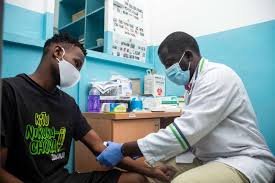
The Nigerian Government has approved the recruitment and deployment of more than 20,000 health workers to public health facilities across Nigeria as part of ongoing reforms to strengthen the nation’s healthcare workforce.
Coordinating Minister of Health and Social Welfare, Prof. Ali Pate, announced this on Thursday in Abuja during the official rollout of the Nigeria Strategic Directions for Nursing and Midwifery (NSDNM) 2025–2030, a five-year roadmap to enhance healthcare delivery and elevate the nursing profession.
Pate said the approval, granted by President Bola Tinubu, will prioritise nurses and midwives, who will make up about 60% of the new recruits. He noted that the initiative aligns with the government’s Sector-Wide Approach (SWAP) reforms, under which 69,000 frontline health workers have already been retrained across all 36 states.
“This administration has made deliberate investments in the health workforce, particularly in nursing, midwifery and other frontline professions,” Pate said. “The new policy will strengthen education, create dignified career paths, expand leadership opportunities, and retain top talent within our health system.”
He added that the NSDNM will guide reforms and investments aimed at improving workforce motivation, distribution, and resilience across the health sector.
Chief of Staff to the President, Femi Gbajabiamila, who served as special guest, described the initiative as “a bold, comprehensive roadmap” to improve healthcare outcomes and professional standards. He called for collaboration among government agencies, professional bodies, and development partners to ensure full implementation.
Permanent Secretary of the Ministry, Daju Kachollom, said the strategy rests on four pillars—education, job creation, workforce retention, and leadership development—to ensure nurses and midwives play a central role in health policy and service delivery.
Registrar of the Nursing and Midwifery Council of Nigeria, Ndagi Alhassan, revealed that the country now produces over 115,000 nurses annually, up from 23,000 in previous years. However, he noted that employment absorption remains a challenge, prompting new community-based initiatives to deploy nurses to underserved areas.
The event also featured awards to Prof. Pate, Senator Banigo, and Rt. Hon. Gbajabiamila as Ambassadors of the Nursing and Midwifery Profession.


